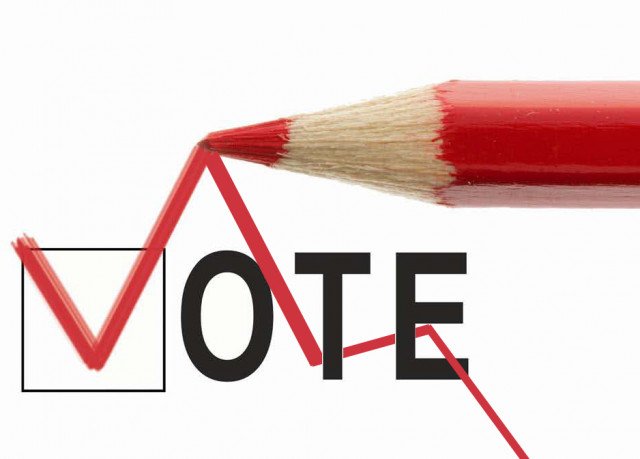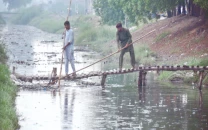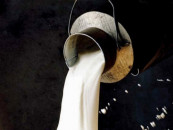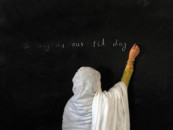Is there an effective economic argument for democracy?
Sadly, some of Pakistan’s best growth years have been in times of martial law.

Sadly, some of Pakistan’s best growth years have been in times of martial law. PHOTO: EXPRESS/FILE
Democracy and economic growth don’t go hand in hand. At least not in Pakistan. Throughout the more than 60 years that Pakistan has been in existence, the best growth years that we have seen, have predominantly been in the times of military rule.
I am not saying this to advocate martial law; rather, I am saying this to urge our political leadership to pay heed to their short-comings and count their blessings that we are not yet a true democracy where the people’s vote really is a harbinger of change, like it is in developed countries around the world.
For example after the country slipped into its first era of military rule, GDB growth rate jumped from an average of 2.5% in the 1950s to 6.8% in the 1960s. This is widely acknowledged as an era of unprecedented growth for the Pakistani economy. You can make many arguments for the political repercussions of this era, but I am just talking numbers here.

Back to civilian rule
And once the country re-entered the democratic fold in 1971, which was a painful transition with tragic side-effects, the growth rate slumped to 4.8%. But democracy has always been short-lived in Pakistan. It wasn’t long before this fragile system once again got steam-rolled and Pakistan entered its most tumultuous era of all. Economic growth however in the 1980s once again went through the roof averaging 6.5%.
I do believe that the 1970s and the 1980s have been the two defining decades in Pakistan’s history. The 1970s ushered in an era of economic decay and mismanagement and bureaucratic stagnation the effects of which we have been unable to remove to this day.
In the same way the 1980s have forever left the dark shadow of war looming over Pakistan. It is no wonder that today we are mired in the clutches of both militancy and economic mismanagement.
In the 1990s, with the country once again under civilian rule, growth rate started to slide and by the time Pakistan entered its third and so far last military stint in 1999, it had fallen to historic lows, from an average of 6.5% in the 1980s to 2% in 2001. It was in Musharraf’s time that Pakistan saw some of its best growth years, with a high of 9% in 2004-5.
And one year into the present democratic setup, in 2008-9 the growth rate had slumped to 1.7%, the lowest in Pakistan’s history.
Dismal report card
The present government has had a dismal five years. The power crisis has gone from bad to worse. The circular debt has not been controlled.
The Debt Limitation Act has been breached every year and the debt to GDP ratio has surpassed all historic levels.
The rupee has set a record low of over 100 to the US dollar and Foreign Direct Investment has been on the decline. Sadly, the last year and subsequently the last budget prepared by this government was even more populist than ever. Subsidies have continued to rise and debt servicing has been eating a bigger and bigger slice of revenue every year.

Martial law is not the answer, but unless democratic governments give up their populist agendas, they won’t be able to give credence to the mantra, ‘Democracy is the best revenge’ either.
Published in The Express Tribune, February 18th, 2013.
Like Business on Facebook to stay informed and join in the conversation.



















COMMENTS
Comments are moderated and generally will be posted if they are on-topic and not abusive.
For more information, please see our Comments FAQ